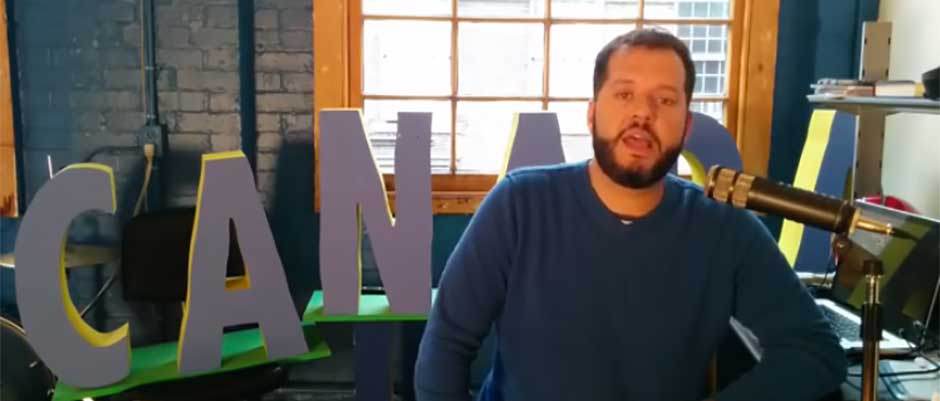Canadaland is an Essential Backchannel
Canadaland
If there is a must-read, must-see, must-hear experience for Canadians seeking to develop their media literacy, it is the Canadaland Podcast.
Jesse Brown, veteran of the CBC, Saturday Night, Macleans, Toronto Life, The Toronto Star, and now podcaster, wants to be Canada’s media critic. Not only has he succeeded, he has attracted his own critic in Joe Clark. No, not that Joe Clark, another Joe Clark. Curious how having a critic gives credence, or at least import, to your efforts—so much better than indifference.
When Jesse Brown claims to be a media critic, he is using the word ‘media’ quite differently from the Association for Media Literacy’s use of the word. For Jesse Brown,’media’ refers to what the AML calls ‘news media,’ a subset of the media industry. This conflation—using the term ‘media’ to refer to the news media industry—is practiced by almost all news media personnel and has hampered media literacy education for years. Media studies is certainly about social media, news media, entertainment media, sports media, etc. But it is also about the cognitive and physiological influences of images, words and sounds on the ways that people think and act. In fact, that is the more interesting and profound area of inquiry.
Ironically, what Brown started out to do—critique Canada’s news industry—has evolved to be more closely associated with what the AML is trying to do, which is to support people as they try to make sense of the rapidly-evolving media landscape, and more specifically, the Internet and wireless technologies. Just for historical reference: wireless texting 1996, Skype 2003, Facebook 2004, Youtube 2005, Twitter 2006, Tumblr 2007, iPhone 2007, Snapchat 2011, Google+ hangouts 2011, Snowden files 2013.
Early Canadaland conversations focused on Michael Enright and others with whom Mr. Brown associated while at the CBC. There are great—and illuminating—conversations with Ezra Levant, Andrew Coyne and Linden McIntyre. With the success of Canadaland, and the need to fill his twice-weekly newshole, Brown has moved to less mainstream conversations. Specifically, important dialogues with Chris Parsons, who has helped him understand the mechanics and extent of online surveillance.
Canadaland provides an essential backchannel to many Canadian media industry events, and seeks answers to questions we all need to understand. What is happening off-stage at the CBC? …The National Post? …Sun Media? …CSE? …Global News?
How might Canadaland be used in schools?
Listening is an important—yet too-rarely addressed—media literacy and life skill. Critical thinking and critical literacy opportunities should be taken. Many high school classes (civics, media studies, Canadian studies, English, politics, history, presentation and speaking skills) could greatly benefit from listening to and discussing selected podcasts. In Ontario, the Achievement Chart specifically references Communications, which directly connects each of these subjects to podcast listening.
What is somewhat unique about Brown—and especially valuable for students who need to learn limits—is that he is able to be cogent, aggressive and articulate without attacking. He does this especially well in his interviews with Ezra Levant and his critic Joe Clark, and such skills are crucial for people who need to learn to be assertive without resorting to violence or ad hominem attacks.
Students might:
summarize episodes
challenge speakers’ points of view
formulate inquiry questions
discuss the podcasts’ structures
compare and contrast podcasts, identifying the strengths and weaknesses of each
imagine additional questions that Brown might ask in a follow-up interview
compare the casual, ‘back channel’ tone of the podcast conversations to interviewees’ formal on-stage personae and presentation styles
Whichever podcast episodes and activities are addressed, Canadaland provides students with wonderful media literacy learning and communications opportunities.
Footnote: It has been challenging, if not impossible, for creators to be fairly compensated for their online work. This challenge applies to journalists as much or more than artists. Canadaland is trying to sustain itself not by selling ads (e.g., Youtube) but by direct support from its listeners via Patreon, an organization that collects and shares revenues with creators. Students might research and discuss this revenue system’s ethics and likelihood of success.



